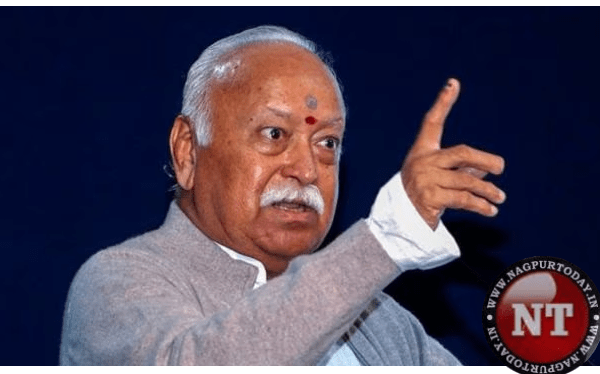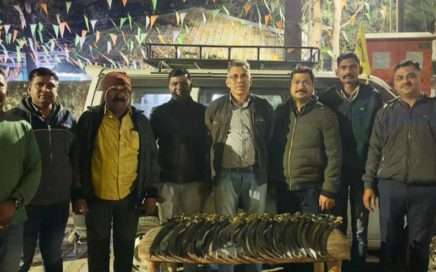Nagpur: Raising concerns over India’s declining population growth rate, Rashtriya Swayamsevak Sangh (RSS) chief Mohan Bhagwat has suggested that families should aim for at least three children to maintain population stability. Bhagwat emphasized the importance of demographic balance for the survival of a society.
Addressing the Kathale Kul Sammelan in Nagpur on Sunday, the RSS Sarsanghchalak said in Marathi, “Loksankhya shashtra asa sangta ki 2.1 cha khali jayla lagla tar to samaaj nasht hoto. Prithvi cha pathi kuthech rahat nahi. Tyala koni marat nahi. To apopap nashta hoto. 2.1 cha khali yeta kama nahi. Jansankhya policy 1998 ki 2002 te hi asa sagtat ki 2.1 cha khali … 0.1 manus tar janmat nahi … tar don peksha jasta pahije teen tari kamit kami asa shashtra sangtat.”
Citing demographic studies, Bhagwat said, “When the population growth rate falls below 2.1, societies begin to vanish without external intervention. It is crucial to ensure that the growth rate does not dip below this threshold.” He referred to India’s population policies and scientific data, underscoring the need for families to have more than two children to meet this target.
Bhagwat explained the concept of Total Fertility Rate (TFR)—the average number of children born to a woman during her reproductive years. India’s TFR has declined significantly, from 3.4 in 1992-93 to 2.0 in 2019-21, with rural areas witnessing a sharper drop. A TFR of 2.1 is considered “replacement-level fertility,” essential to maintaining a stable population across generations.
Preserving values through family
Highlighting the family as a cornerstone of society, Bhagwat said, “Families are not just units of society; they are carriers of culture and values across generations. These timeless values are not only relevant to Indians but have global significance.” He stressed the role of family in preserving and passing on cultural heritage, warning that languages and cultures could face extinction without demographic stability.
Bhagwat also connected population trends to global conflicts, asserting that prejudice and arrogance have fueled disputes. In his view, spreading Indian culture– centred on values rather than caste, language, or regional identity– could contribute to global harmony. “Indian culture emphasizes values above all else, offering a path to coexistence and peace,” he said.
The demographic debate
Bhagwat’s remarks have sparked conversations about balancing population policies and societal needs. While India’s declining fertility rate aligns with its development goals, concerns over aging populations and shrinking workforce numbers have also surfaced.
With India’s TFR now below replacement levels, experts note that population stabilization will take years. However, a prolonged dip in fertility rates could lead to challenges such as a reduced labour force, aging population, and economic strain. Bhagwat’s three-child suggestion, though contentious, adds to ongoing debates about population dynamics in the country.
The RSS chief’s call to action underscores the complex relationship between population, culture, and societal stability, urging policymakers and citizens alike to consider long-term implications.

















